The bob A of a pendulum released from horizontal to the vertical hits another bob B of the same mass at rest on a table as shown in figure.
If the length of the pendulum is 1m, calculate
(a) the height to which bob A will rise after collision.
(b) the speed with which bob B starts moving.
Neglect the size of the bobs and assume the collision to be elastic.
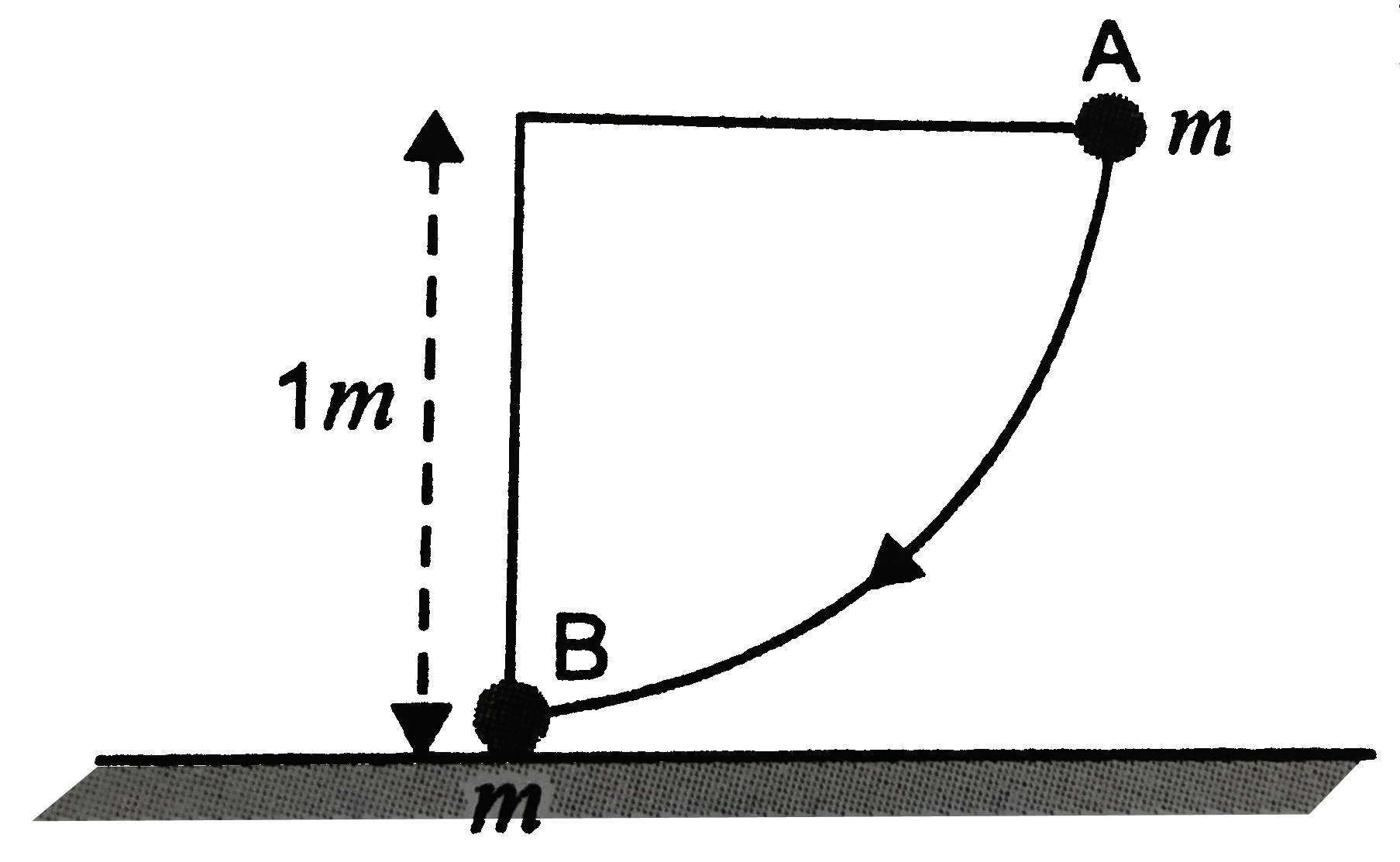
(a) As the collision is elastic and two balls have same mass, therefore, ball A transfers its entire linear momentum to B and does not rise at all.
Topper's Solved these Questions
- BOOK - PRADEEPCHAPTER - WORK, ENERGY AND POWEREXERCISE - Long Answer Question24videos
WORK, ENERGY AND POWER
- BOOK - PRADEEPCHAPTER - WORK, ENERGY AND POWEREXERCISE - Advanced Problems For Competitions20videos
WORK, ENERGY AND POWER
- BOOK - PRADEEPCHAPTER - WORK, ENERGY AND POWEREXERCISE - Very Short Anwer Question.54videos
WORK, ENERGY AND POWER
- BOOK - PRADEEPCHAPTER - THERMODYNAMICSEXERCISE - Assertion- Reason Type Questions19videos
THERMODYNAMICS
Similar Questions
The bob A of a simple pendulum released from 30∘ to the vertical hits another bobo B of the same mass at rest on a table as shown in figure. How high does the bob A rise after the collision ? Neglect the size of the bobs and assume the collision to be elastic.
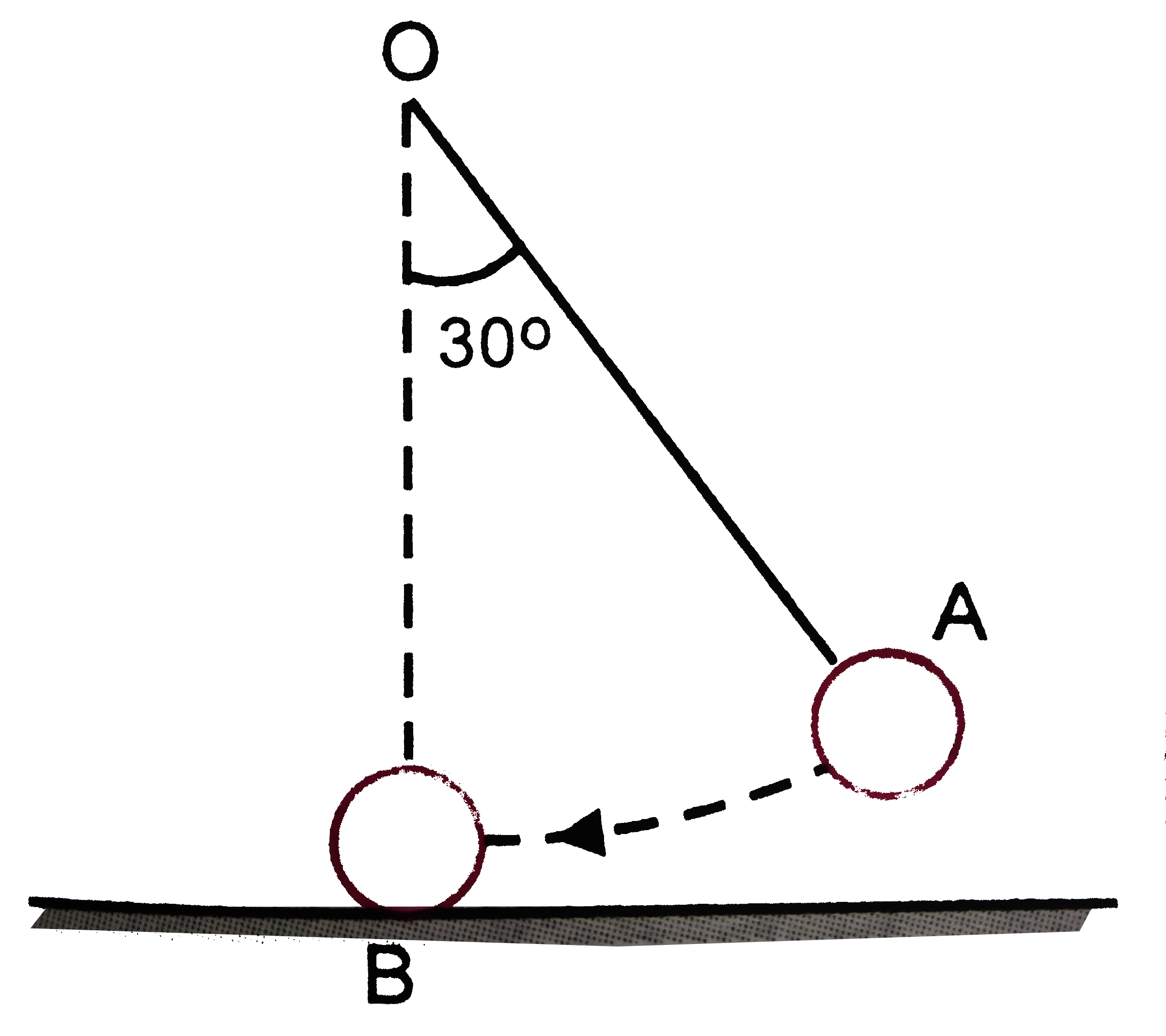 View Solution
View SolutionThe bob A of a pendulum released from a height h hits head-on another bob B of the same mass of an identical pendulum initially at rest. What is the result of this collision? Assume the collisio to be elastic (see figure).
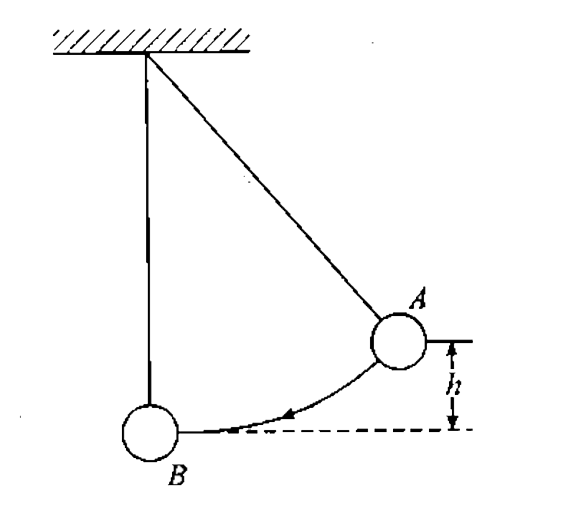 View Solution
View Solution
Knowledge Check
- Question 1 - Select One
The bob A of a simple pendulum is released when the string makes an angle of 45∘ with the vertical. It hits another bob B of the same meterial and same mass kept at rest on the table. If the collision is elastic, then
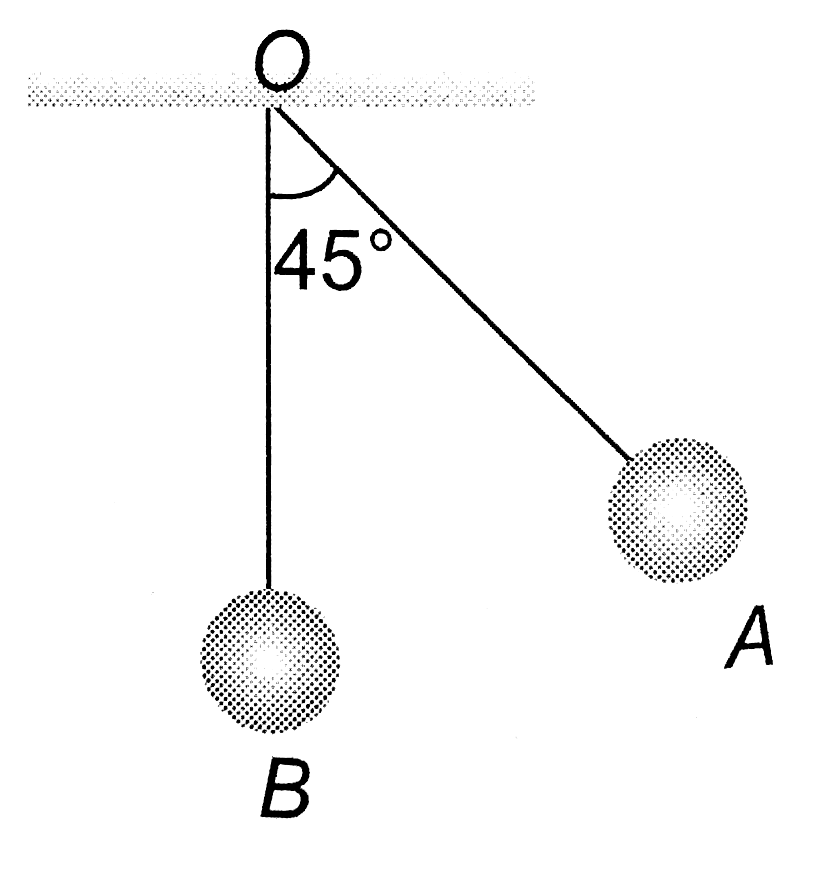 ABoth AandB rise to the same heightBBoth AandB comes to rest at BCBoth AandB move with the same velocity of ADA comes to rest and B move with the same velocity of A
ABoth AandB rise to the same heightBBoth AandB comes to rest at BCBoth AandB move with the same velocity of ADA comes to rest and B move with the same velocity of A - Question 2 - Select One
A ball of mass m moving horizontally at a speed v collides with the bob of a simple pendulum at rest. The mass of the bob is also m. If the collision is perfectly inelastic and both balls sticks, the height to which the two balls rise after the collision will be given by:
Av2gBv22gCv24gDv28g - Question 3 - Select One
Choose the most appropriate option.
The bob of a pendulum is released from a horizontal position A as shown in the figure. If the length of the pendulumis 1.5 m, what is the speed with which the bob arrives at the lower most point B, given that it dissipated 5% of its initial energy against air resistance?
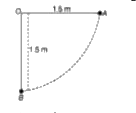 A5m/sB5.5m/sC5.3m/sD4.4m/s
A5m/sB5.5m/sC5.3m/sD4.4m/s
The bob A of a simple pendulum is released from a horizontal position A as shownin in figure. If the length of the pendulum is 1.5m , what is the speed with which the bob arrives at the lowermost point B, given that it dissipates 5% of its initial energy against air resistance ?
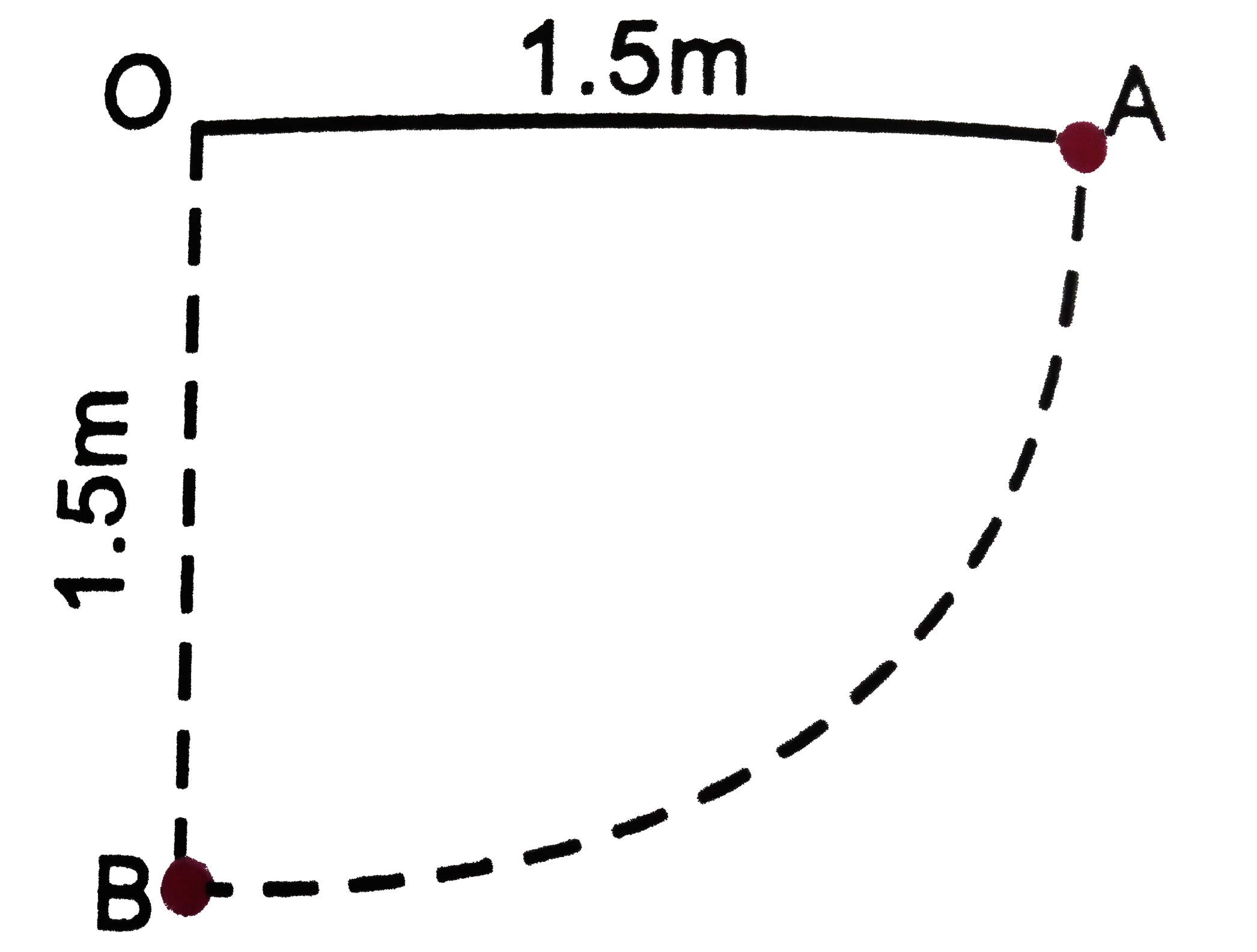 View Solution
View SolutionThe string of a pendulum is 2.0m long. The bob is pulled sideways so that the string becomes horizontal and then the bob is released. What is the speed with which the bob arrives at the lowest point ? Assume theat 10% of initial energy is dissipated against air resistance. Take g=10m/s2
View SolutionA 1N pendulum bob is held at an angle θ from the vertical by a 2N horizontal force F as shown in figure. The The tension in the string supporting the pendulum bob (in newton) is
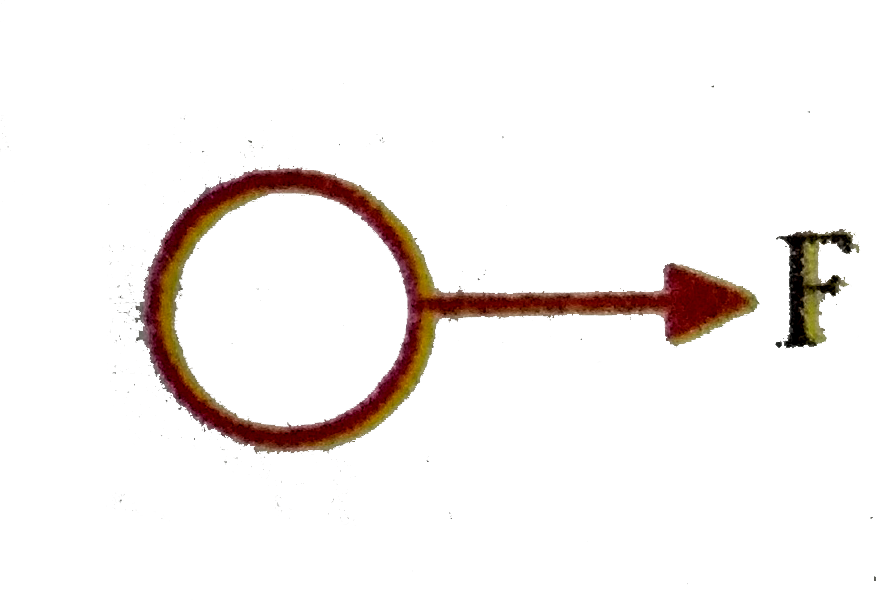 .View Solution
.View SolutionA 1N pendulum bob is held at an angle θ from the vertical by a 2 N horizontal force F as shown in the figure. The tension in the string supporting the pendulum bob (in newton) is
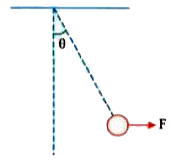 View Solution
View SolutionIf the metal bob of a simple pendulum is replaced by a wooden bob, then its time period will
View Solution

